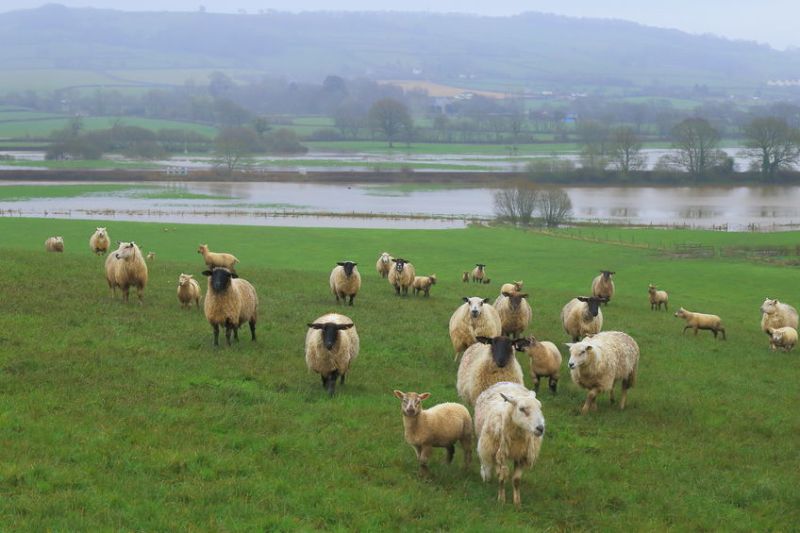NFU urges government to take increasing flood risk seriously

The NFU is urging the government to take the impact of flooding on the farming industry and food production more seriously.
Some of the UK's most productive farmland lies in floodplains or coastal regions, vulnerable to flooding.
The farming union says agricultural land deserves to be protected in the same way urban areas are.
In the Fens, a hugely productive agricultural area, there has been an ongoing battle to protect its soils from sea and river flooding.
The area is well protected, with more than 60 miles of coastal sea banks and 96 miles of fluvial embankments.
However, climate change is posing an increasing threat to the thousands of farms which make their living off the land.
Scientists predict sea level rises of up to one metre by 2080 together with an increase in the frequency and intensity of storm surge events in the UK.
The issue will be discussed at a workshop hosted by the NFU in London today (12 June) to look at the Environment Agency’s new strategy to tackle flooding and coastal change.
NFU Vice President Stuart Roberts said agriculture 'must not be ignored' when it comes to flood risk.
“Productive farmland is an irreplaceable national asset, not just for the provision of food but the other public goods it provides.
“The severe floods experienced in recent years have demonstrated why necessary long-term strategic plans must be in place to tackle the nation’s flooding issues.”
He added: “This must include the right financial resources, to mitigate future flood risk and to ensure our farmers and growers can continue to produce a safe, traceable and affordable supply of food.”
The importance of internal drainage boards
The NFU recently spoke to delegates at the trade event Floodex and highlighted the importance of internal drainage boards (IDBs) in battling extremities.
An IDB is a local public authority that manages water levels. They are an integral part of managing flood risk and land drainage within areas of special drainage need in England and Wales.
Such boards are created to manage intricate draining systems and help land flourish for agriculture, the environment and the communities that live there.
Mr Roberts called for 'adequate funding' to ensure that the 'great work' farmers and IDBs are doing to protect people, property and livelihoods is not 'lost'.
He said: “Farmers can be part of the solution and through internal drainage boards. The importance of these cannot be underestimated and the expertise and knowledge provided by farmers must be recognised.
“The government has stated that 2019 is the year of green action. But what about blue? We really must start taking water-related issues seriously in order to safeguard this essential resource for the future and to protect productive farmland from predicted rises in sea level and increasingly frequent flooding.”








